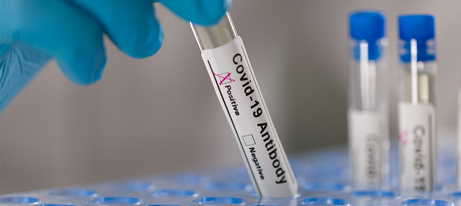
mbz-photodesign / Getty Images
A global consensus is building to more thoroughly vet and improve testing strategies for SARS-CoV-2 antibody assays, whose performance in studies has yielded inconsistent and, at times, poor results. A recent letter to the BMJ from British researchers perhaps sums up key anxieties about these tests. No reference standard in the U.K. exists, and it’s been difficult to access true positive and true negative samples, even in large teaching hospitals. “Laboratories across the country will have found it hard to achieve the necessary standard verification in a matter of days, not least because different platforms will be used” by Abbott, Roche, and other manufacturers, they cautioned.
Accuracy appears to vary by type of test. A BMJ review of 40 studies that compared antibody tests against a control test reported inconsistent results across platforms, especially with respect to sensitivity. Investigators evaluated enzyme-linked immunosorbent assays, lateral flow immunoassays (LFIAs), or chemiluminescent immunoassays and immunoglobulin class (IgG, IgM, or both). Pooling results of these studies, the researchers noticed that sensitivity results varied by test method, ranging from 66% to 97.8%. This means that the tests could miss anywhere from 2.2% to 34% of patients with the novel coronavirus. The LFIA point-of-care test (POCT), touted as a way to grant “immunity passports,” had lower pooled sensitivities in comparison to other tests. “These observations indicate important weaknesses in the evidence on COVID-19 serological tests, particularly those being marketed as point-of-care tests,” noted the researchers.
Another study that compared four anti-SARS-CoV-2 IgG test kits reported high sensitivity in convalescent sera and high specificity for the Abbott, Euroimmun, and Ortho Clinical assays. A fourth assay from Epitope Diagnostics scored high on specificity (99.6%) but not sensitivity (73%). “With the unprecedented influx of commercially available serologic tests for detection of antibodies against SARS-CoV-2, it remains imperative that laboratories thoroughly evaluate such assays for accuracy prior to implementation,” the researchers suggested.
A Cochrane Systematic Review underscores the importance of timing in serology tests. Evaluating laboratory tests and POCT from 54 studies, investigators found that tests identified only 30% of SARS-CoV-2 cases 1 week after the onset of symptoms. Accuracy increased significantly in week 2 (70%) and week 3 (more than 90%). Test specificity overall was high, at 98%. These findings suggest that antibody tests would best serve people with longer-term symptoms who either had a negative reverse transcription polymerase chain reaction (RT-PCR) test or never got a RT-PCR test.
“However, the duration of antibody rises is currently unknown, and we found very little data beyond 35 days post‐symptom onset. We are therefore uncertain about the utility of these tests for seroprevalence surveys for public health management purposes,” the investigators summarized. It’s also unclear how well the tests work in patients with milder symptoms, since the studies mainly focused on hospitalized patients with more severe symptoms.
Yet another large analysis of 40 studies from around the world by EUnetHTA (European Network for Health Technology Assessment) concluded that antibody tests could identify past infection but were too slow to detect or rule out acute infection when symptoms manifest. Their utility might be in field studies to indicate seroprevalence in populations.
In May, a group of experts from the U.S. Department of Health and Human Services convened online to address the challenges of these tests and identify strategies. Their key recommendations:
- Expand testing abilities to differentiate between vaccine-induced and naturally occurring antibodies.
- Develop and validate assays based on specimen types and quantitative assays specific for IgG and IgA.
- Conduct independent studies using thorough serological panels.
Clinicians should not rely on serology tests alone to guide patient decisions on SARS-CoV-2 until more data emerges on their capability to assess immunity, the panel concluded.
The working group’s call for improvement echoes other sentiments to pause, reflect, and reexamine the strategy for serology assays. In summing up the uses and limitations of these tests, AACC in recent guidance underscored the importance of evaluating cross-reactivity, sensitivity, specificity, and predictive values to assess antibody test performance. “Until a clear picture emerges regarding prevalence, serologic test results should not be used as the sole basis for clinical or public health policy decisions,” advised AACC.
In other AACC coverage, two experts cautioned that SARS-CoV-2 serology tests don’t necessarily live up to their hype, advising labs to conduct validation studies that analyze several specimen sources to assess a test’s false positive rate and include subsets of patients with other seasonal coronaviruses.
For more information on serology tests, the July issue of Clinical Chemistry features a review article that outlines the advantages and challenges of serology tests, in addition to studies of four serology assays (Roche; Elecsys; and Abbott and EUROIMMUN).